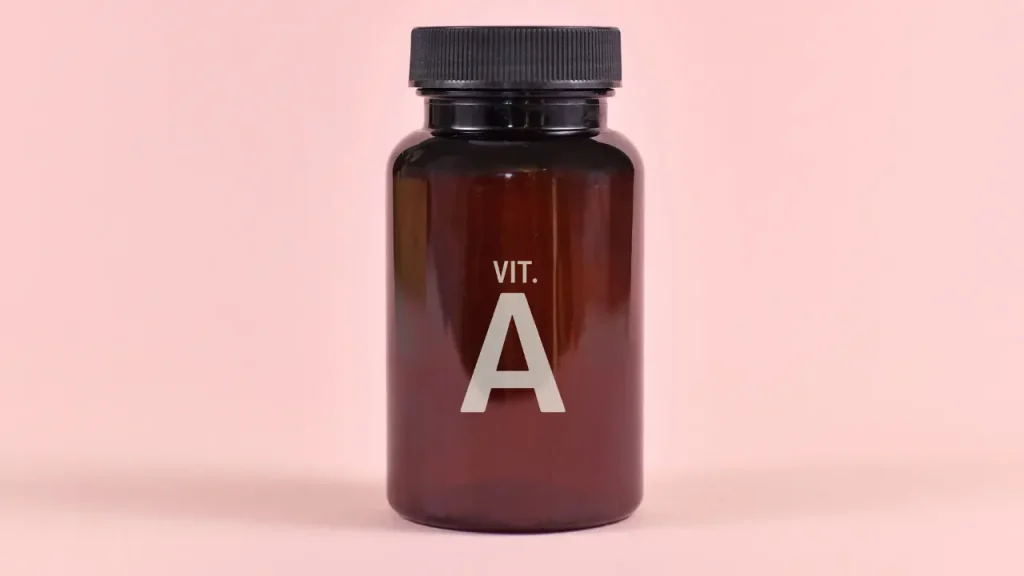Description
Autoimmune retinopathy (AIR) represents a rare but serious ocular disorder that develops when the body’s immune system unintentionally attacks the retina, a crucial part of the eye that is essential for vision. AIR is a serious worry for both patients and ophthalmologists because this attack causes progressive vision loss along with other visual abnormalities.
AIR is a diverse set of autoimmune conditions that mainly affect the retina. It is characterized by a variety of symptoms, such as diminished night blindness, photopsia or flashes of light, peripheral vision, and general loss of visual field. In extreme circumstances, central vision loss might occur, resulting in severely impaired vision or blindness. Due to AIR’s vague symptoms and resemblances to other retinal illnesses including retinitis pigmentosa, diagnosing AIR may be difficult.
You May Also Like:
5 GREAT REASONS TO TRY APIGENIN FOR STRESS RELIEF
Autoimmune Retinopathy (AIR): Description, Causes, And Treatment Protocol is an original (HealthXWire) article.
Possible Causes
Although the exact origins of AIR are unknown, numerous factors, including the following, have been attributed to their development: –
Presence of Autoantibodies: Autoantibodies are a crucial aspect of AIR. These autoantibodies attack particular proteins in the retina, inducing an inflammatory reaction that damages retinal cells and impairs vision.
Genetic predisposition: An important contributing component of AIR is thought to be genetic susceptibility. An individual’s sensitivity to autoimmune disorders, particularly those that damage the retina, may be increased by specific genetic alterations and mutations. A family record of autoimmune diseases may also increase the likelihood of acquiring AIR.
Environmental factors: Environmental triggers or exacerbators of AIR in genetically vulnerable individuals are believed to include illnesses or exposure to specific chemicals. An immune reaction brought on by an infection may unintentionally attack the tissues of the retina.
Autoimmune conditions: An elevated chance of developing AIR has been associated with underlying autoimmune diseases like rheumatoid arthritis, lupus, or Sjögren’s syndrome.

Exacerbating and Mitigating Factors
In the onset and treatment of autoimmune retinopathy (AIR), aggravating and moderating factors are important. Listed below are some typical AIR aggravating and reducing factors: –
Exacerbating Factors: –
- Family History: A higher chance of acquiring the syndrome can result from a family background of autoimmune disorders or AIR. Immune system reactivity susceptibility may be influenced by genetic variables.
- Environmental Triggers: The immunological response that results in AIR may be triggered or aggravated by exposure to specific environmental variables, like infections or chemicals. The condition must be managed by recognizing and avoiding certain triggers.
- Autoimmune Disorders: If you already have any autoimmune diseases including lupus, Sjögren’s syndrome, or rheumatoid arthritis may be more likely to get AIR. An autoimmune condition may make it more likely for another to develop, notably autoimmune retinopathy.
- Stress: Chronically high-stress levels can harm the body’s immune system and aggravate autoimmune reactions. Techniques for managing stress and alterations to one’s way of life may facilitate AIR by reducing the effects of stress.
- Infections: Autoimmune illnesses have been connected to the emergence or escalation of specific infections. In relation to AIR, infections could set off an immunological reaction that harms the retina.
- Medications: Certain medications may worsen autoimmune reactions and speed up the development of AIR. Patients must disclose all medications to their medical professionals so they can evaluate any potential effects on the condition.
Mitigating Factors:
- Immunomodulatory Therapy: Immunomodulatory treatments like corticosteroids and immunosuppressive medications can help regulate the immune reaction and decrease retinal inflammation.
- Early Identification and Treatment: Early detection and quick treatment can help decrease the growth of AIR and protect vision. Regular checkups of the eyes are essential, especially for people who have a family connection with autoimmune illnesses.
- Avoidance of Triggers: Exacerbating AIR is less likely if probable triggers like specific drugs, illnesses, or environmental variables are recognized and avoided.
- Stress Management: Participating in stress-reduction exercises like yoga, mindfulness, or meditation can mitigate the negative effects of stress on the body’s immune system and, subsequently, on AIR.
- Regular Follow-Up: To track the development of AIR and modify the treatment regimen as necessary, regular follow-up appointments with an ophthalmologist must be made.
- Ultraviolet (UV) Protection: Wearing UV-protective eyewear can help reduce inflammation and safeguard the health of the retina by shielding the eyes from overexposure to sunlight.
- Refrain from Smoking: Smoking has been associated with the emergence of several autoimmune illnesses and may exacerbate AIR. The immune system may benefit from quitting smoking, which is good for general well-being.
- Lifestyle Modifications: A balanced diet, consistent exercise, and enough sleep can enhance overall health and possibly have a good impact on the immune system.

Standard Treatment Protocol
In order to manage the autoimmune reaction, lessen retinal inflammation, and maintain vision, autoimmune retinopathy (AIR) is treated. The common AIR treatments are as follows: –
- Corticosteroids: Strong anti-inflammatory drugs called corticosteroids can help to lessen inflammation within the retina and inhibit the immune system. According to the severity and place of the inflammation, they may be given orally, topically, or intravenously.
- Immunosuppressive Drugs: Immune system-suppressing drugs are frequently administered to treat autoimmune reactions in AIR. The immunosuppressive medications cyclosporine, azathioprine, mycophenolate mofetil, and methotrexate are frequently prescribed. These drugs aid in stopping the immune system’s assault on the retina and subsequent damage.
- Intravenous Immunoglobulin (IVIg): High doses of thoroughly cleaned human immunoglobulins are infused into a patient’s bloodstream during IVIg therapy. IVIg can modify the immune system, disarm dangerous autoantibodies, and lessen retinal inflammation.
- Plasma Exchange (Plasmapheresis): With plasmapheresis, the individual’s blood plasma, containing autoantibodies and other immunological components, is removed and substituted with donor plasma. This procedure aids in reducing the bloodstream levels of dangerous autoantibodies.
Treatment Options
In order to increase its effectiveness or provide the patient more support, adjunct therapies are supplementary treatments performed in conjunction with established treatment regimens. The following are some more AIR therapy options: –
Nutritional Supplements: Following are some dietary supplements that people with AIR may want to use to promote retinal health: –
- Vitamin A
As an integral part of the optical pigment rhodopsin, vitamin A is essential for the health of the retina. The best vision requires enough vitamin A levels.
- B Vitamins
The B vitamins, including B9 (folate), B6, and B12, serve as essentials for overall wellness and could help healthy neuron and retinal function. They participate in the methylation procedure, which is important for many cellular processes.
- Antioxidants
Vitamins E and C and other antioxidants are essential for shielding cells in the retina from oxidative damage. They eliminate free radicals, that may damage the tissues of the retina. Supplemental antioxidants may promote retinal health and reduce inflammation.
- Vitamin D
Immune control is a function of vitamin D, which may also affect how the immune system reacts to autoimmune diseases.
- Omega-3 Fatty Acids
The omega-3 fatty acids docosahexaenoic acid (DHA) and eicosapentaenoic acid (EPA), especially, are crucial for retinal function while possessing anti-inflammatory characteristics. High-EPA and DHA fish oil supplements can enhance eye health by reducing retinal inflammation.
- Zinc
One of the vital trace minerals called zinc contributes to a variety of metabolic activities within the retina. It contributes to the synthesis of vision pigments and retinal metabolism.
- Lutein and Zeaxanthin
The retina, especially the macula, has significant levels of the carotenoids lutein and zeaxanthin. They function as antioxidants and could aid in defending the retina from oxidative damage and blue light impairment. Lutein and zeaxanthin-rich supplements may benefit macular health.
Natural and Herbal Remedies: The following are some potential herbal and natural AIR treatments: –
- Turmeric (Curcumin)
The turmeric ingredient curcumin has been shown to have antioxidant and anti-inflammatory effects. It might support immune response modulation and lessen retinal inflammation.
- Gingko Biloba
An herbal supplement called gingko biloba has been shown to have neuroprotective properties and may improve blood circulation to the retina.
- Bilberry
Antioxidants and anthocyanins are abundant in bilberries. It is thought to improve vision and may even maintain the health of the retina.
- Açaí Berry
Antioxidants found in abundance in aça berries, especially anthocyanins, may help shield retinal cells from damage caused by oxidative stress.
- Green Tea
Antioxidants and polyphenols are abundant in green tea. Green tea contains the particular polyphenol epigallocatechin gallate (EGCG), which possesses anti-inflammatory characteristics and might be advantageous for retinal health.
- Acupuncture
Traditional Chinese medicine includes stimulating particular body spots, and acupuncture is one such method. Acupuncture can be a great alternative treatment method for AIR to promote general wellness and possible advantages for eye health.
However, it is important to keep in mind that, despite the possibility of advantages, clinical research has not been sufficiently conducted to determine whether these herbal and natural therapies are successful at treating AIR. Individual responses to various treatments can also differ, and some herbs may combine negatively with other drugs or have undesirable side effects. To ensure that they remain safe and suitable for a person’s unique condition and state of health, it is better to speak with a healthcare expert before utilizing any herbal or natural medicines.

Conclusion
Autoantibodies, genetic predisposition, environmental triggers, and underlying autoimmune diseases all have a role in the development of AIR, even if its exact causes are yet unknown.
The evolution of AIR is significantly influenced by aggravating variables like family history and stress as well as mitigating factors like immunomodulatory treatment and stress management. Corticosteroids, immunosuppressive medications, intravenous immunoglobulin, and plasma exchange are all parts of the typical treatment plan for AIR. In addition, adjunct therapy, such as dietary supplements and herbal medicines, show potential but needs more study. You should consult closely with your healthcare practitioner and take into account tailored techniques based on the most recent clinical research in order to guarantee safe and efficient management of AIR.

Additional resources for further reference
- https://journalretinavitreous.biomedcentral.com/articles/10.1186/s40942-017-0104-9
- https://www.aao.org/eyenet/article/diagnosis-and-management-of-autoimmune-retinopathy
- https://www.ncbi.nlm.nih.gov/pmc/articles/PMC7690499/
- https://jamanetwork.com/journals/jamaophthalmology/fullarticle/422689
Important Note: The information contained in this article is for general informational purposes only, and should not be construed as health or medical advice, nor is it intended to diagnose, prevent, treat, or cure any disease or health condition. Before embarking on any diet, fitness regimen, or program of nutritional supplementation, it is advisable to consult your healthcare professional in order to determine its safety and probable efficacy in terms of your individual state of health.
Regarding Nutritional Supplements Or Other Non-Prescription Health Products: If any nutritional supplements or other non-prescription health products are mentioned in the foregoing article, any claims or statements made about them have not been evaluated by the U.S. Food and Drug Administration, and such nutritional supplements or other health products are not intended to diagnose, treat, cure, or prevent any disease.


